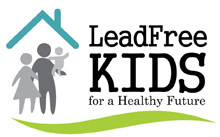Blood Lead Levels
 Lead poisoning can lead to learning and behavior problems, particularly among young children, who are most at risk. As noted, there are many sources of lead and no level of lead in the blood is safe.
Lead poisoning can lead to learning and behavior problems, particularly among young children, who are most at risk. As noted, there are many sources of lead and no level of lead in the blood is safe.
Whether lead exposure comes from paint, soil, old toys, or water – families should avoid exposure to lead. See Simple Steps to Protect Your Child from Lead (English-Spanish).
If you are not sure if your child has been exposed to lead, ask your doctor (pediatrician) to do a blood lead level test. This test is the only way to find out if your child has a high lead level. Most children with high levels of lead in their blood have no symptoms. Your child's health care provider can recommend treatment if your child has been exposed to lead.
Helpful Information
- Blood Lead Levels: What Do They Mean?
- Blood Lead Test: What Parents Need to Know
- 5 Things You Can Do: English | Español
- Environmental Protection Agency list of certified labs for testing drinking watert
- Want a blood level test and don‘t have a doctor?
Call Alameda County Public Health’s Family Health Line
Toll free: 888 604-INFO (4636)

